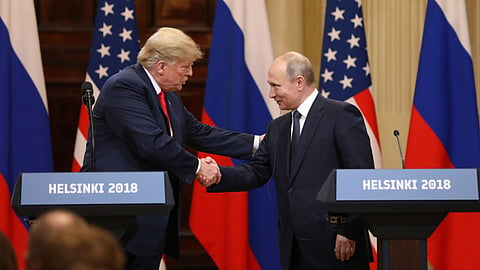Max Hastings: Europe’s struggle with MAGA is unlikely to end well
For the past 80 years, the U.S. has shouldered global security responsibilities, primarily within NATO. With European reliance on American defence now at risk, nations face pressure to boost their own military spending, as Trump's potential policies signal reduced support. European leadership remains weak, and despite some efforts, defence spending falls short, making Western security uncertain.
Sign up for your early morning brew of the BizNews Insider to keep you up to speed with the content that matters. The newsletter will land in your inbox at 5:30am weekdays. Register here.
The seventh BizNews Conference, BNC#7, is to be held in Hermanus from March 11 to 13, 2025. The 2025 BizNews Conference is designed to provide an excellent opportunity for members of the BizNews community to interact directly with the keynote speakers, old (and new) friends from previous BNC events – and to interact with members of the BizNews team. Register for BNC#7 here.
By Max Hastings
___STEADY_PAYWALL___

